Some life chapters are harder than others. For many couples, the dream of starting a family brings unexpected hurdles emotionally, physically, and financially. Infertility treatments like IVF often test resilience, mental health, and even in-law relationships.
Today’s Original Poster (OP) thought she had a great relationship with her mother-in-law. However, what started as a difficult fertility journey turned into a shocking marital implosion, one fueled not by her or her husband’s choices alone, but seemingly orchestrated by the same mother-in-law.
More info: Reddit
Starting a family is often painted as one of life’s most joyful milestones, but for many couples, the road is far from simple

Image credits: prostooleh / Freepik (not the actual photo)
The author and her husband, recently married, began IVF to try for a baby, but the process was emotionally difficult and included a miscarriage
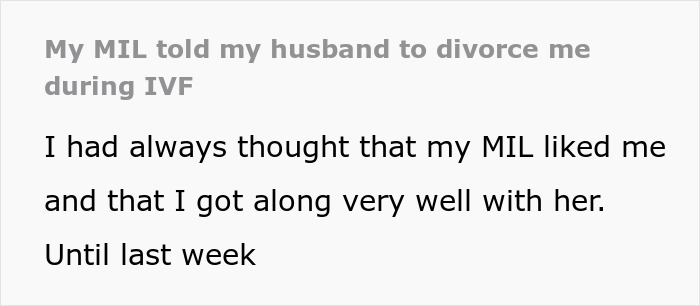
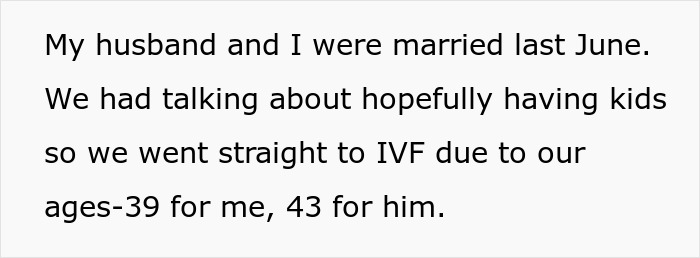
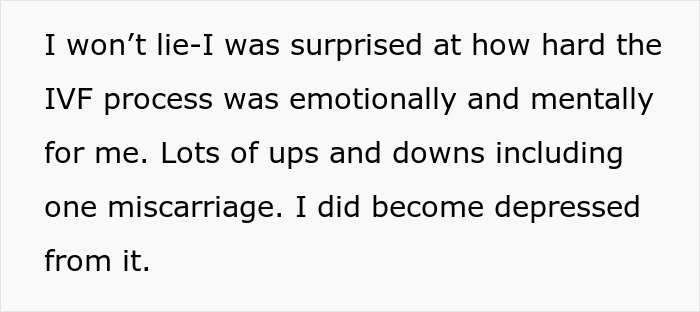
Image credits: anonymous

Image credits: freepik / Freepik (not the actual photo)
They both struggled—she with depression from infertility, and he with severe anxiety, for which he sought therapy and medication
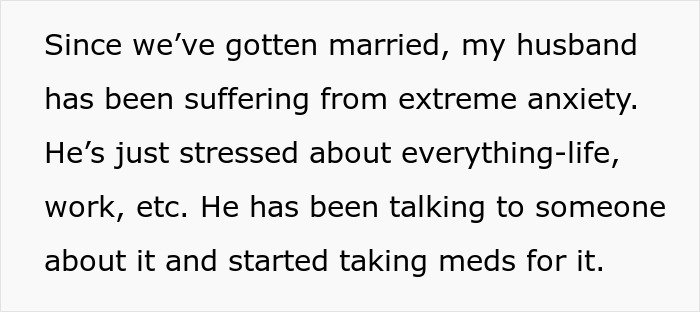
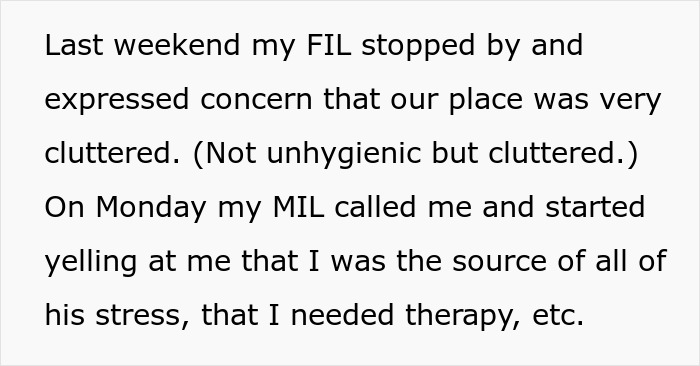
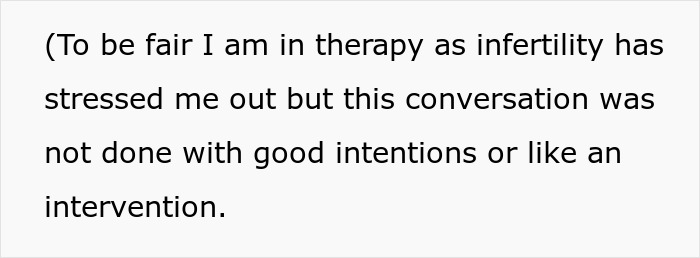
Image credits: anonymous

Image credits: hryshchyshen / Freepik (not the actual photo)
Her father-in-law visited and commented on their cluttered home, and shortly after, the mother-in-law phoned and accused her of causing all her son’s stress
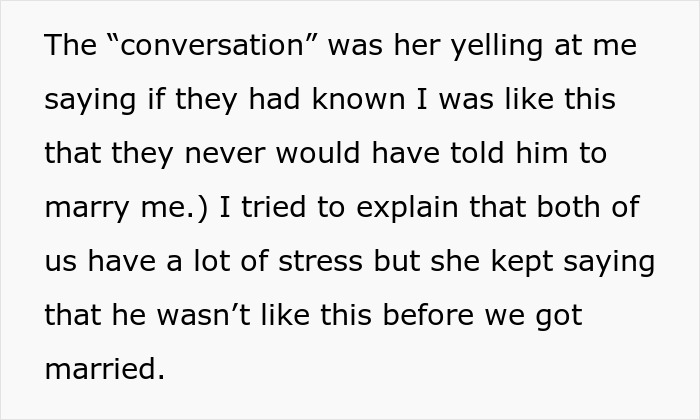
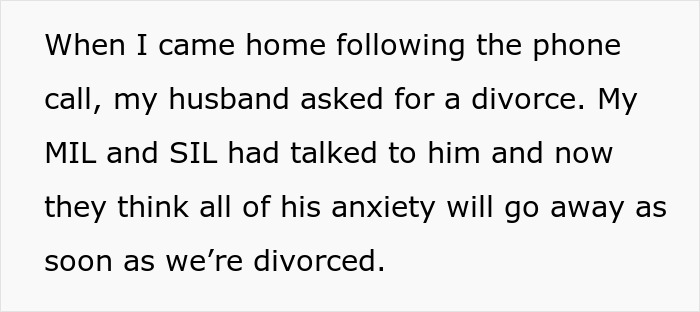


Image credits: anonymous
The mother-in-law added that the family wouldn’t have supported the marriage if they’d known, and by the time the author returned home, her husband asked for a divorce
The story begins with hope. After getting married in June, the OP and her husband jumped straight into IVF to start a family after a miscarriage. For the wife, this journey brought emotional strain, depression, and the crushing reality of setbacks along the way.
Meanwhile, her husband was quietly battling crippling anxiety that had taken over since the wedding. Therapy and medication became part of his routine, but life felt heavy for both of them. After a seemingly harmless visit where the father-in-law noted the home was a little cluttered, the mother-in-law escalated things.
She called the OP and launched into a tirade, blaming her entirely for her son’s anxiety, accusing her of being unstable, and even saying the family would have advised against the marriage had they “known the truth”. Every effort to remind her mother-in-law that she was also incredibly stressed was futile, as the mother-in-law insisted that her son wasn’t like this before.
When she returned home after the heated phone call, she wasn’t prepared for what her husband had to say. Encouraged by his mother and sister, he asked for a divorce, believing that ending the marriage would cure his anxiety. He refused couples counseling, cut off communication while she was still undergoing her third egg retrieval.
To understand the ripple effects of anxiety and depression on a marriage, Bored Panda spoke with licensed marriage and family therapist Steph Anya, who explained that mental health struggles in one partner can quietly strain a relationship, affecting communication, intimacy, and day-to-day routines.
“A partner who is struggling may withdraw, become irritable, or seem distant, leaving the other feeling frustrated or unsupported,” she said, adding that over time, these patterns can create a cycle where stress compounds, and the emotional connection begins to weaken.

Image credits: freepik / Freepik (not the actual photo)
When asked about the role of couples counseling, particularly when one partner is leaning toward divorce due to family pressure, Anya described it as a crucial safe space. “It provides a neutral space where both partners can separate outside influence from their own feelings and truly explore what they want for the relationship,” she explained.
Furthermore, she stated that counseling helps couples communicate more effectively, manage conflict without blame, and uncover patterns that might otherwise go unspoken. “Even if a divorce ultimately occurs, counseling can make the process clearer, more respectful, and less emotionally damaging,” she highlighted.
We also asked how someone should navigate the situation if their partner refuses counseling. Anya emphasized the importance of self-care and setting healthy boundaries. “Focusing on self-care, individual therapy, and healthy communication strategies helps you stay grounded and make clearer decisions,” she advised.
She added that modeling a willingness to work on oneself may gradually encourage the reluctant partner to engage, but stressed that it’s equally important to balance hope for reconnection with realistic acceptance. “Ultimately, it’s about recognizing what is within your control and what isn’t,” she said.
Netizens expressed sympathy and support for OP, recognizing the emotional toll of IVF and the unfair pressure from her husband’s family. They encouraged her to prioritize her own well-being and continue pursuing her dreams of having a child, even without her husband.
What do you think about this situation? Do you think the OP should continue her IVF journey on her own or wait for reconciliation? We would love to know your thoughts!
This happened just days before a serious procedure for the author, and netizens encouraged her to prioritize herself and go ahead with it without her husband






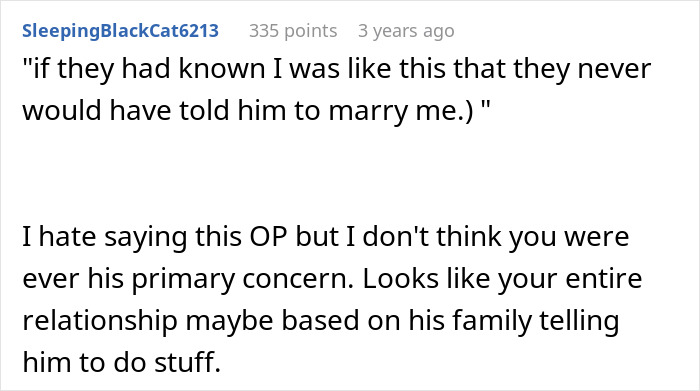
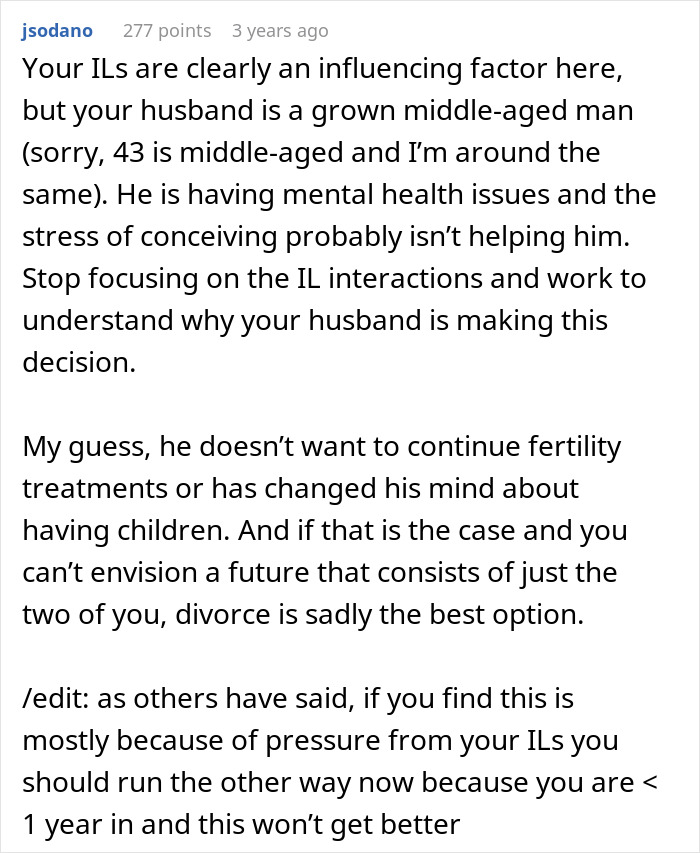

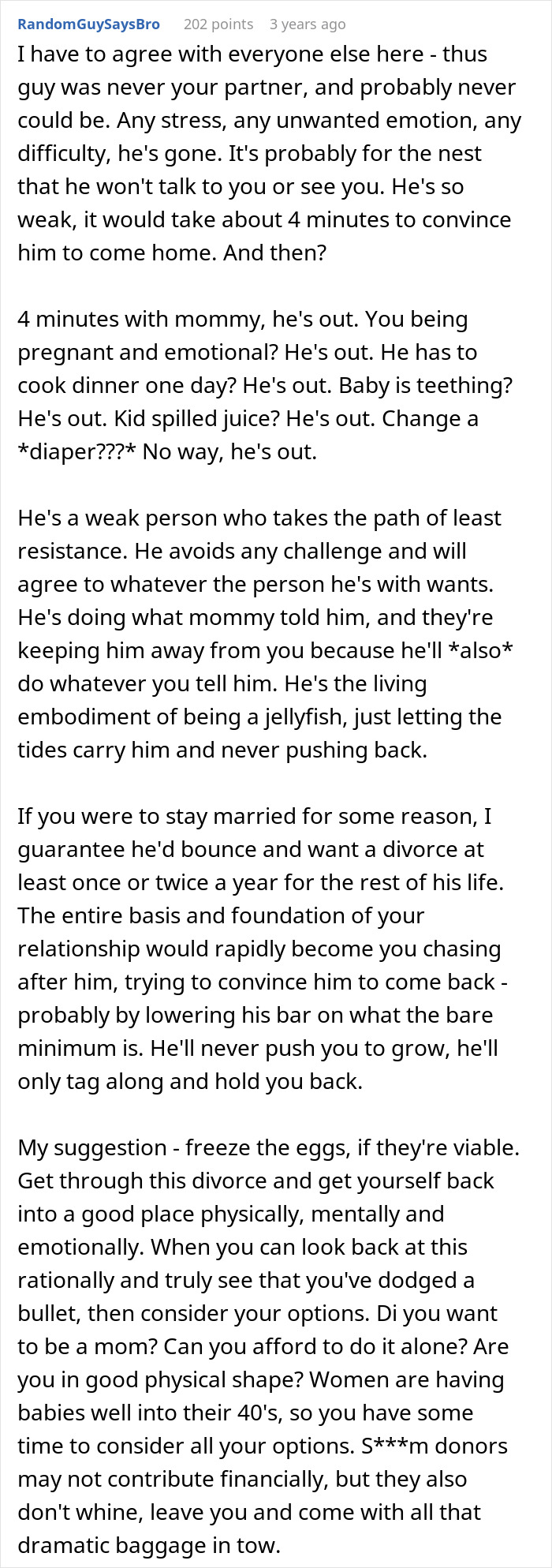

 Follow Us
Follow Us





